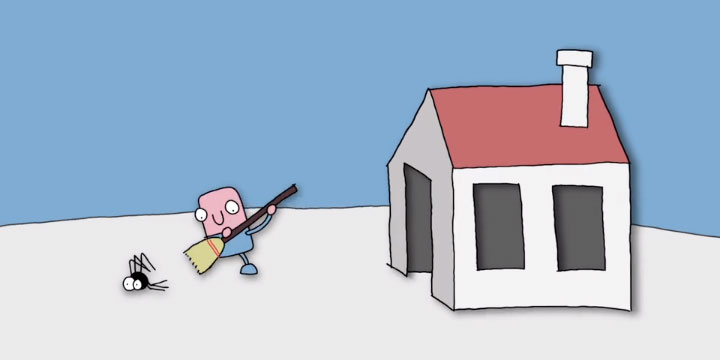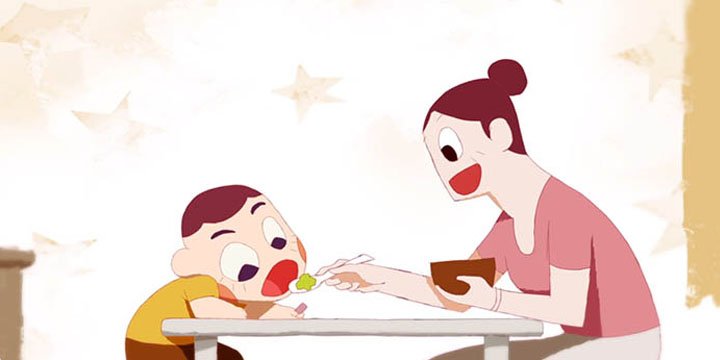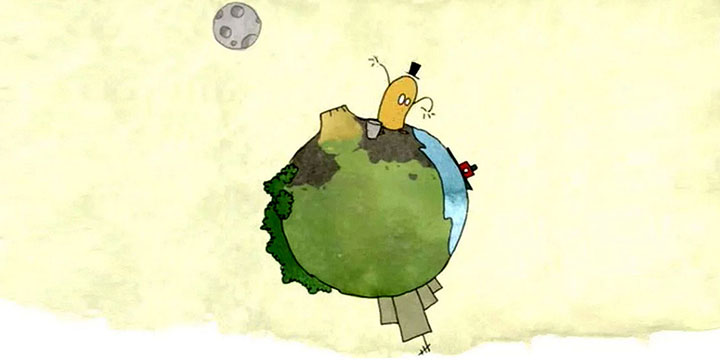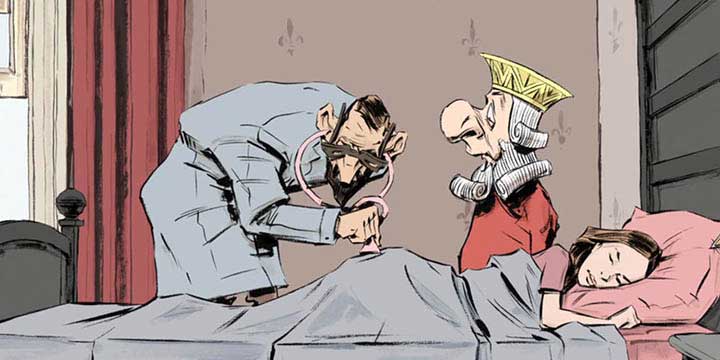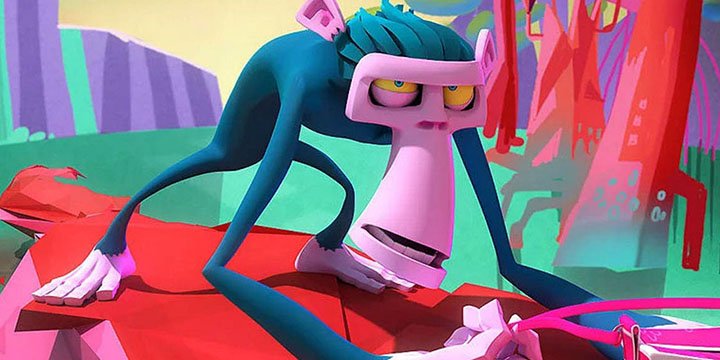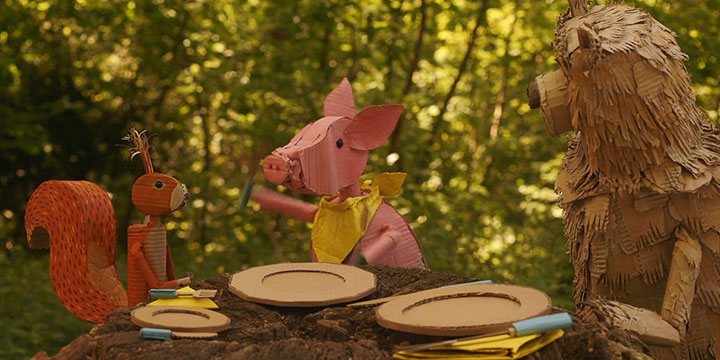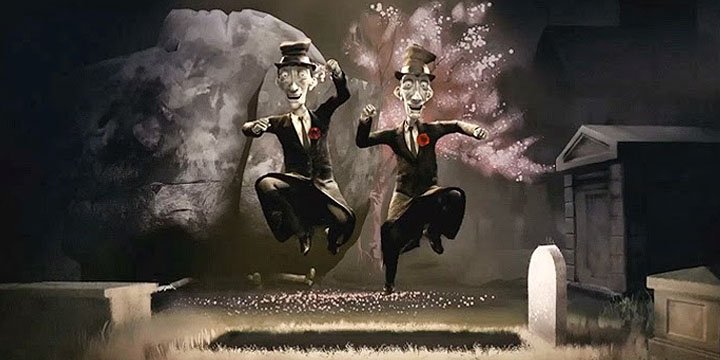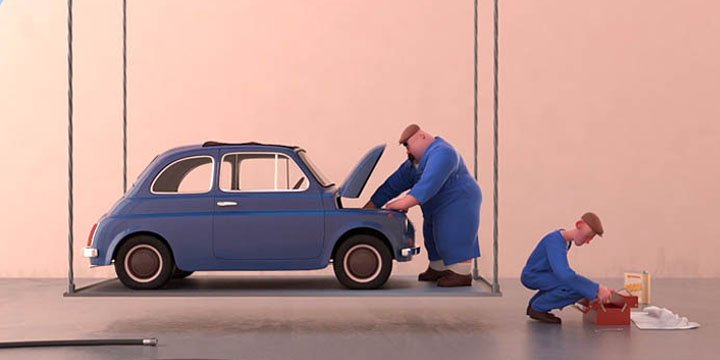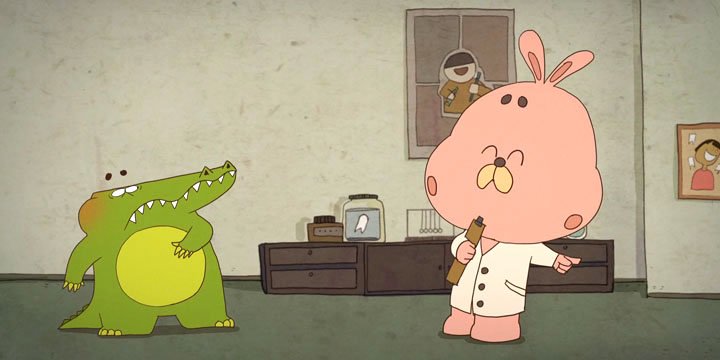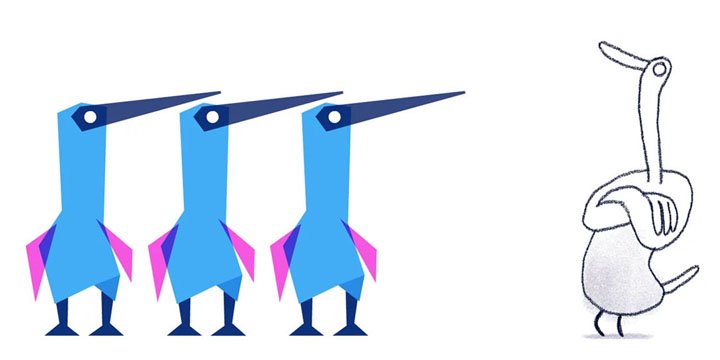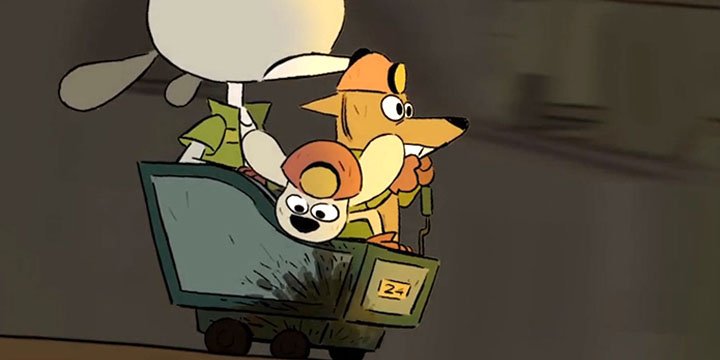Film commentary: The visitors
This very short film is presented as an illustration of a maxim - "A man's home is his castle" - and turns it into an ironic counter-example.In this case: it is impossible to imagine controlling everything when dealing with nature.With the help of a very simple device (childish drawing, single shot, alternating texts/drawings), he contrasts two series:
- man / order / the house / the closed, on the one hand,
- animals (spiders) / the uncontrolled / the outside / the open, on the other.
But the subject is not developed, it is above all a joke, both visual and textual, nevertheless sophisticated in its form and particularly effective, approaching the "witticism" (witz), with which it shares the fulgurating and apparent simplicity.
Questioning the film: The visitors
Understanding the story, the theme, expressing one's sensibility and exercising one's critical mind.The film is a good tool to work on some implicit conventions, which it brings to light: cultural representations, ready-made formulas, format norms...
To begin with, we can try to formulate the opposition on which the humorous effect is based, by noting the thematic elements: open/closed, animal/human, free/controlled, clean/dirty, etc.
An extension could be to reflect on the cultural image associated with the spider: why do we absolutely want to get rid of it? We can think back to Victor Hugo's poem "J'aime l'araignée" (I love the spider) in Les contemplations (1856). Similarly, more generally, why is domestic space in Western cultures based on the evacuation of nature (animals, non-gardened plants)? An evocation of the habits of other cultures (spiders as a sign of blessing in African houses) could be a good way of putting things into perspective.
In a more formal field, and even if it is more complex, the ironic mechanism would benefit from being dismantled: it is always based on an asserted ideal state (in this case, the idea of order, of mastery, associated with the maxim) whereas we know that the reality is quite different (the spiders are always coming back). We can, for example, reflect on what this film has in common with the remark of the man who exclaims, as he leaves his house in the pouring rain: "What a beautiful day! This irony could probably also be perceived in the choices of format: ultra-short duration, cartoon where the texts are at least as important as the images, emphasis of the title...
1 With what words could one describe the character on the one hand and the spiders on the other?
Human/animal, inside/outside, free/set...
2 Why in this film do we not need to know the character's thoughts?
We already know how he will react.His reactions are clichés.
3 Why are there spiders in houses?
They can go wherever they want, for example into houses.Some also live specifically in houses.
4 Why might a poet have written that he likes spiders because they are victims?
They are hunted or killed because they are scary, even though they are harmless.
Unlike mosquitoes that feed on our blood, spiders do not bite or sting.
5 Wouldthe film be the same without the sounds?What is the purpose of the sounds?
No, the film would not be the same without the sounds.
The sounds are used to magnify the situation or to say something different from the images.
6 Doesthe director of the film really think that "every man is master of his house"?What is his intention in saying this?
He does not think so, but says it because it is the opposite of what is happening in the images and it has a humorous effect.
7 Did you know that having spiders in your home is a good sign?
It is a sign of a clean environment, without too much dust.
Download the PDF of the film's educational activities
Created with the support of the Ministry of Education and the CNC.Viewing of the film with the family, educational activities with parents at home and with teachers in the classroom.
Hidden inhabitants (Questioning the world) (Cycle 2 and 3)
Educational activities proposed by Bruno Pellier based on the film The perfect magic.
Totems (Plastic arts) (Cycle 2 and 3)
Educational activities proposed by Bruno Pellier based on the film The perfect magic.
Discover other educational sheets created with the support of the Ministry of National Education and the CNC...
Theme
ImaginationGenre and keywords
Contemplative, hypnotic, imagination, animalsRecommended age
5 yearsRunning time
4 min 15 sTitle
The visitorsDirected by
Yuanyuan HuMusic
Noriko IidaSound design
Katsutaka SuzukiRobin v. d.Heiden


